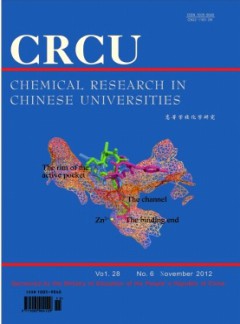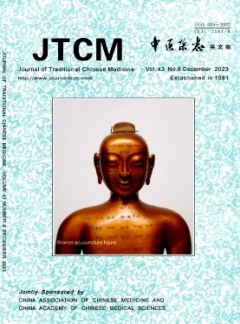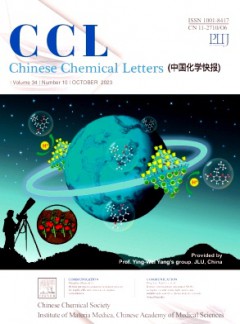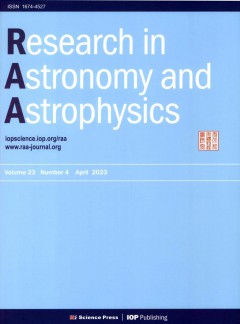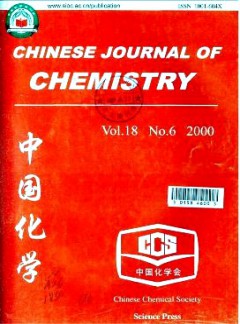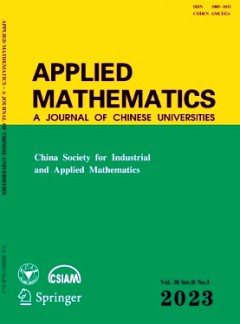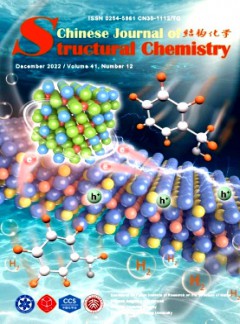Chemical Research in Chinese Universities杂志简介
《Chemical Research in Chinese Universities》1984年创刊,是中华人民共和国教育部委托吉林大学主办的化学学科综合性学术刊物。
《Chemical Research in Chinese Universities》由中华人民共和国教育部从全国重点高等院校和中国科学院聘请91位学术造诣精深的化学家组成学术阵容强大的编委会,由著名高分子化学家周其凤院士任主编。
《Chemical Research in Chinese Universities》以研究论文、研究快报、研究简报和综合评述等栏目集中报道我国高等院校和中国科学院各研究所在化学学科及其交叉学科、新兴学科和边缘学科等领域所开展的基础研究、应用研究和重大开发研究所取得的最新成果。
《Chemical Research in Chinese Universities》以“新、快、高”(即选题内容新,文章发表速度快和学术水平及编辑出版质量高)为办刊特色,刊载国家自然科学基金、攀登计划、“八六三”和“九七三”计划资助项目及其它科学基金资助项目成果文章达90%以上。
《Chemical Research in Chinese Universities》曾获1996年国家教委优秀科技期刊二等奖、1999年全国优秀高等学校自然科学学报及教育部优秀科技期刊评比一等奖。
Chemical Research in Chinese Universities收录信息
Chemical Research in Chinese Universities杂志荣誉
Chemical Research in Chinese Universities杂志特色
一、MANUSCRIPT SUBMISSION
When you first submit your paper, please upload the Word or PDF file. When your paper is accepted, you will be required to send the original source files. Submissions should be accompanied by a brief covering letter from the corresponding author. All correspondence, including the editor’s decision and request for revisions, will be done by e-mail. Chemical Research in Chinese Universities applies a non-refundable submission fee which the author(s) have to pay when the manuscript is ready to submit . If a paper is accepted for publication there will also be a publication fee.
二、MANUSCRIPT PREPARATION
Title: The paper title should be simple, concise and informative. Author(s): A list of all authors and their corresponding addresses with post codes for an effective mail delivery should be provided. The telephone and fax numbers (with country and area code) in addition to the e-mail address and the complete postal address of the corresponding author should be given. Abstract: An abstract is a summary of the content of the manuscript. Figures, tables, chemical structural formula, equations, reference citations should be avoided. Keywords: A list of 3-5 keywords should follow the abstract. Text: Organize the text as Introduction, Experimental, Results and Discussion, Acknowledgment and References. Physical quantities, units and symbols, etc., when used, should be consistent with the International System of Units (SI) and the Quantities and Units of the State
Standards of the People’s Republic of China. Latin and Greek Characters should be labeled. Figures and Tables: Figures and tables should be consecutively numbered with Arabic numerals in the order of in which they are mentioned in the text; each figure should have a descriptive legend. All illustrations should be in a finished form suitable for reproduction. No figures should exceed 10 cm×12 cm, which is large enough to take a reduction of 50%. Coordinate axes on figures should be labeled with the ordinate label written vertically and labels for quantities with dimensions should include units. Drawings should be of professional q uality or generated by high-resolution computer graphics. Equations: An equation is numerically numbered (Arabic numeral), and has the number put on its right side. References: References to the literature should be cited in the text by Arabic numerals in square brackets set on the text line, and listed numerically at the end of the paper. Style and punctuation of references should be in accordance with the following examples:
[1]Hu S. Q., Huang K. K., Hou C. M., Yuang H. M., Hu B., Feng S. H., Chem. Res. Chinese Universities, 2010, 26(5), 675
[2]Pines H., The Chemistry of Catalytic Hydrocarbon Conversion, Academic Press, New York, 1981, 170
三、PEER REVIEW
All submissions will be reviewed by at least two referees selected by the editor. The author will be informed whether the manuscript is accepted within two months. If case of rejection, the manuscript won’t be returned to the authors. The revised manuscript must be sent to the editor within 50 days, from the date on which the editor sends the manuscript to the author, otherwise the editor will consider that the manuscript has been withdrawn by the author voluntarily.
四、COPYRIGHT TRANSFER
The Copyright Transfer Statement must be returned to the Editorial Department of Chemical Research in Chinese Universities when the manuscript is accepted for publication.
五、RESEARCH DATA POLICY
The journal encourages authors, where possible and applicable, to deposit data that support the findings of their research in a public repository. Authors and editors who do not have a preferred repository should consult Springer Nature’s list of reposi tories and research data policy.
General repositories - for all types of research data - such as figshare and Dryad may also be used.
Datasets that are assigned digital object identifiers (DOIs) by a data repository may be cited in the reference list. Data citations should include the minimum information recommended by DataCite: authors, title, publisher (repository name), identifier.
DataCite
Springer Nature provides a research data policy support service for authors and editors
This service provides advice on research data policy compliance and on finding research data repositories. It is independent of journal, book and conference proceedings editorial offices and does not advise on specific manuscripts.
